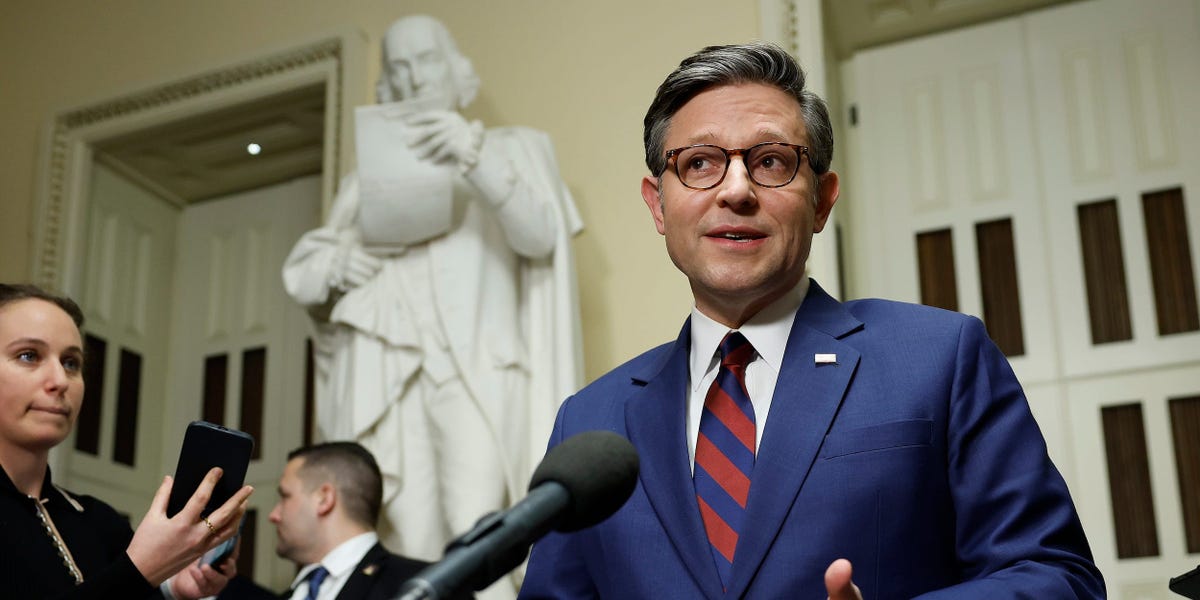House Republicans Pass Budget Plan with Potential Medicaid Cuts
House Republicans have approved a budget plan that may lead to significant cuts in Medicaid, a program that currently supports over 72 million Americans, particularly in states like California. According to House Speaker Mike Johnson, the focus is on “rooting out fraud, waste, and abuse” within the Medicaid system.
The proposal is part of ongoing, heated discussions among Congressional Republicans regarding their budget strategies. Such cuts could have far-reaching effects on citizens nationwide. The committee overseeing Medicaid’s funding aims to reduce its budget by $880 billion over the next decade as part of the recently passed budget outline, which narrowly secured approval.
Given that Medicaid and Medicare make up a substantial portion of the budget for this committee, any budgetary reductions will likely impact these programs. An analysis from Business Insider, based on October 2024 Medicaid enrollment data and July 2024 Census Bureau estimates, reveals that states like New Mexico, California, and New York have over a third of their populations relying on Medicaid. Overall, around 23.3% of Americans are enrolled in either Medicaid or the Children’s Health Insurance Program (CHIP), which assists families with children who earn too much to qualify for Medicaid.
State-by-State Reliance on Medicaid
- States with higher Medicaid dependency include regions in the West, Southwest, and Northeast.
- In contrast, parts of the Midwest and South display lower reliance on the program, with Utah showing the least dependence at 9.7%, followed by Wyoming at 10.8%.
As of October, Medicaid provides essential health and long-term care coverage to over 72 million individuals, mainly those with low incomes and limited resources. Additionally, CHIP extends financial support to about 7.2 million children under 18. This program is jointly funded by federal and state governments.
Despite the discussions surrounding potential cuts, Speaker Johnson maintained that the budget plan does not specifically mention reductions to Medicaid. Some Republican leaders have suggested implementing per-capita caps on Medicaid, which would establish fixed federal funding amounts for each enrollee. Proposed estimates indicate this approach could yield savings of up to $900 billion. Additionally, some have endorsed the idea of imposing work requirements for Medicaid eligibility.
The recent House vote represents just the initial phase of what will undoubtedly be a lengthy negotiation process. Senate Republicans are working on alternative plans that, unlike the House’s proposal, do not seek to extend Trump’s 2017 tax cuts or include provisions like eliminating taxes on tips. Both legislative bodies will need to reconcile their differing plans before advancing.
Most states have adopted expanded Medicaid coverage for individuals earning below a certain income threshold—approximately $21,600 annually. This expansion was part of the Affordable Care Act (ACA), also known as Obamacare, enacted in 2010.
Before the vote, Johnson reiterated the Republican commitment to addressing “fraud, waste, and abuse” within Medicaid. He did not confirm to reporters that cuts to the program would be off the table, suggesting that increasing accountability, including preventing access for “illegal aliens,” would help the GOP save funds. Johnson described Medicaid as “hugely problematic” due to its associated fraud and waste.
It is important to note that individuals in the U.S. illegally are not eligible for Medicaid. However, hospitals can claim reimbursement for emergency care provided to any patient, regardless of immigration status, as long as the patient qualifies for Medicaid in other respects. The nonpartisan Congressional Budget Office reported that a total of $27 billion was spent on emergency Medicaid services for non-citizens from fiscal years 2017 to 2023.











